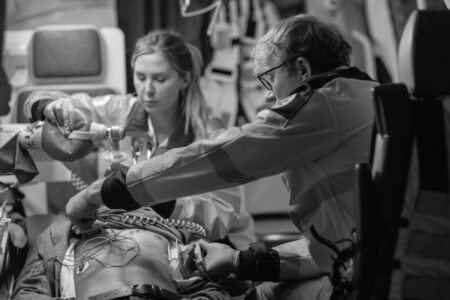When the Supreme Court ruling of Roe vs. Wade was overturned, it prompted researchers to look at obstetric emergencies in the prehospital setting before and after the June 24, 2022, ruling. A recent study sheds light on the researcher’s findings, showing an impact on healthcare disparities, particularly for those in marginalized communities.
Before and After Ruling Overturn
The retrospective study analyzed data from EMS patient care records for females aged 12-40 who had a 911 response for obstetric emergencies. Two time spans were considered, one prior to the Roe vs. Wade ruling being overturned (July 24, 2021 – June 23, 2022) and the other after the ruling (June 24, 2022 – May 24, 2023). Both before and after the overturning of Roe vs Wade, the study found that African American women, women in higher poverty counties and those living in states with no abortion access were disproportionately affected by obstetric emergencies. This disparity further increased after the overturning of Roe vs. Wade. The incidents were also of lower acuity, suggesting a need for improved access to prenatal and primary care in these areas to reduce the utilization of EMS for possibly preventable obstetric events.
Methodology of the Study
The study utilized a multivariable logistic regression model that analyzed various factors such as age, race, poverty, access to abortion and state restrictions, among others. The methodology included adjusting for a range of factors, such as before/after Roe vs. Wade ruling, state restrictions and significant interaction terms. Complete case analysis was used to manage missing data.
Implications on Policy and Practice
The study’s findings indicate that there is a pressing need for improved access to prenatal and primary care, particularly for women living in areas with high poverty levels and in states with limited access to abortion care. The importance of addressing healthcare disparities in marginalized communities, specifically for women of color and impoverished women, cannot be overstated. The study’s multivariable logistic regression model methodology can be used as a tool for evaluating the impact of healthcare policies and solutions. Policymakers and healthcare professionals can use this study’s findings to devise targeted solutions to address healthcare disparities and improve accessibility to prenatal care for vulnerable populations.
Conclusion
The overturned ruling of Roe vs. Wade has impacted reproductive healthcare services and obstetric emergencies among women in marginalized communities. Policymakers and healthcare professionals must take measures to improve healthcare disparities in these communities, particularly for women of color and impoverished women. The study’s findings emphasize the need to improve access to prenatal and primary care. By doing so, we can work towards providing equitable healthcare for all individuals.
Leading Research
This research was presented at NAEMSP’s 2024 annual meeting, where it won best poster abstract presentation out of over 300 entries. ImageTrend Research Manager and Epidemiologist Morgan K. Anderson and New Orleans EMS Director Dr. Emily Nichols proudly presented the research, bringing awareness to a widening issue.
Optional Pre-Title H3 – Basic Content on White
Paragraph Text – Lorem ipsum dolor sit amet, consectetur adipiscing elit, sed do eiusmod tempor incididunt ut labore et dolore magna aliqua. Ut enim ad minim veniam, quis nostrud exercitation ullamco laboris nisi ut aliquip ex ea commodo consequat.




